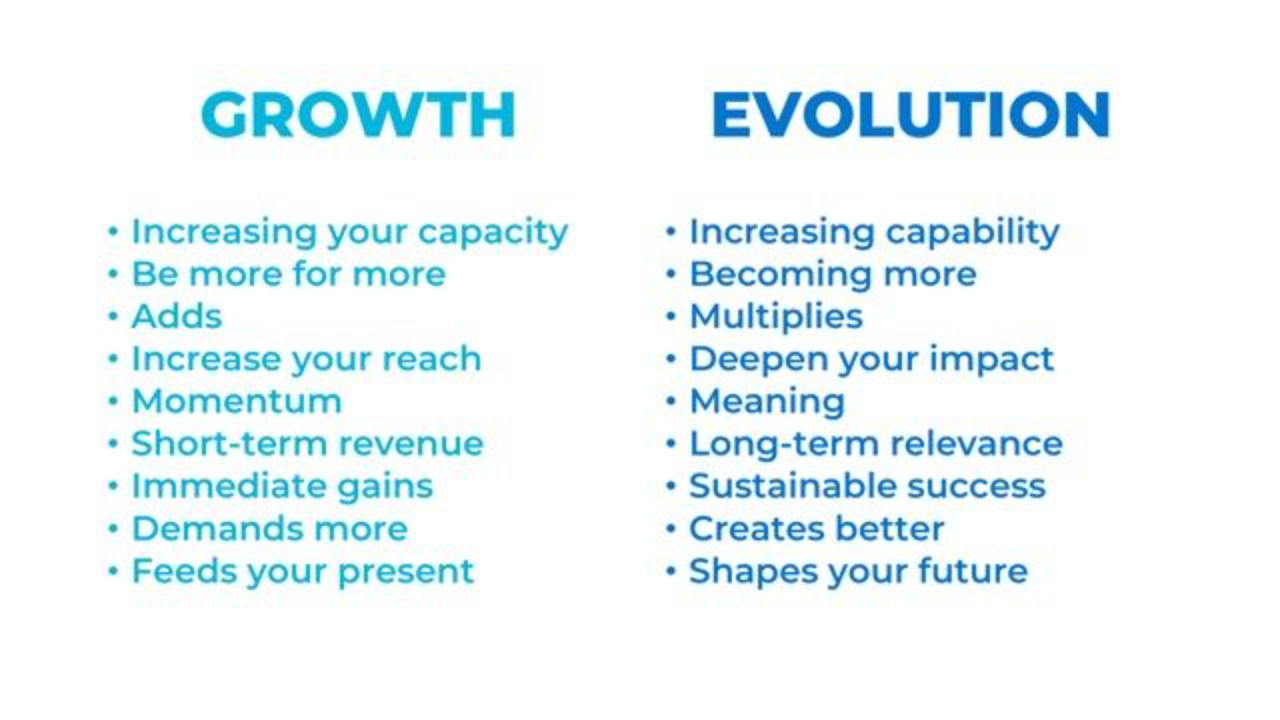Beyond Operating Systems: Why Your Organization Needs an Ecosystem to Thrive
May 27, 2025
In a world where disruption is the new normal, operating systems are no longer enough. Organizations must evolve to survive.
The End of Stability
Remember when disruption was the exception rather than the rule?
When strategic plans could reasonably project 3-5 years into the future?
That world is gone.
We're now experiencing waves of disruption in rapid succession—each arriving before we've fully adapted to the previous one. The pandemic upended our work patterns and supply chains. Before we could settle into a "new normal," AI erupted onto the scene, transforming jobs and entire industries. As organizations scramble to integrate AI, geopolitical tensions are sparking trade wars and economic realignment. On the horizon, quantum computing promises another seismic shift in what's possible.
These disruptions aren't isolated events—they're accelerating and compounding. The intervals between major disruptions are shrinking from decades to years to months. Soon, we won't be moving from one disruption to the next; we'll exist in a perpetual state of disruption where the only constant is change itself.
In this new reality, organizations designed for stability are finding themselves increasingly fragile.
When disruption becomes the baseline condition rather than a temporary state, what's left?
Evolution.
The Limitations of Operating Systems
Traditional organizational operating systems—the fundamental structures, processes, and principles that govern how organizations function—were built for a different era. They excel at efficiency, predictability, and control. They're designed to optimize known processes in stable environments.
But these same characteristics become liabilities when disruption is constant:
-
Rigidity: Operating systems resist fundamental change by design
-
Response lag: Hierarchical decision-making creates delays when speed is critical
-
Innovation bottlenecks: Centralized control limits capacity to generate diverse solutions
-
Optimization over reinvention: Operating systems tend to refine what exists rather than reimagine possibilities
Even when operating systems claim to value people and culture, their approach remains mechanistic. They implement "people analyzers" to ensure the "right people are in the right seats on the bus"...treating humans as interchangeable parts to be optimized, measured, and occasionally replaced.
They view talent as resources to be deployed rather than humans to be developed.
Culture becomes a project to be managed, a set of values to be enforced, rather than a living environment to be nurtured.
As one leader recently described it: "We call them 'operating systems' because they were never meant to lead us, only manage us."
The Ecosystem Alternative
Nature offers us a better model. Ecosystems...interconnected networks of organisms interacting with each other and their environment...have thrived through billions of years of constant disruption through one key capability: evolution.
An organizational ecosystem approach shifts the focus from control to adaptation, from efficiency to resilience, from optimizing to evolving.
In practice, this means:
-
Distributed intelligence: Sensing and responding happens across the network, not just at the center
-
Permeable boundaries: The organization exchanges resources, information, and talent freely with its environment
-
Self-organization: teams reconfigure relationships organically as needs emerge
-
Continuous adaptation: Evolution happens in real-time through countless small adjustments
-
Purposeful alignment: Shared purpose, not command-and-control, creates coherence
From Growth to Evolution
The ecosystem perspective fundamentally changes how we view organizational development. As the Circle Leadership Manifesto powerfully states:
"We don't worship growth. We respect it, as a temporary pulse on a much longer journey. Growth adds. Evolution elevates."
This shift from scaling up to evolving forward recognizes that organizations are living systems that must continuously adapt through variation, selection, and retention of what works.
Leadership in an Ecosystem
In an ecosystem, leadership itself transforms:
-
From position to process
-
From boss to coach
-
From managing tasks to enabling outcomes
-
From extracting value to creating environments where valued people create value
As we believe at Circle Leadership, "Leadership is no longer a title. People are no longer resources. And culture? It's no longer a side project—it's the whole damn game."
Culture as Operating Context
Perhaps most importantly, in an ecosystem approach, culture isn't something the organization has, it's something the organization is.
It's not an output but the operating context itself.
When culture becomes the primary medium through which work happens, rather than structure, process, or procedure, the organization develops an intrinsic capacity to evolve.
It becomes a culture that doesn't just respond to change but is change.
The Ecosystem Imperative
The shift from operating systems to ecosystems isn't a luxury or a progressive option.
It's becoming an existential necessity.
As disruption accelerates and becomes constant, organizations must develop the capacity to evolve continuously or risk extinction.
The future doesn't belong to those who control the most resources or execute most efficiently.
It belongs to those who adapt most effectively, who evolve fast enough to stay relevant while remaining true to their purpose.
We need to move beyond operating systems that merely manage, and create ecosystems that truly lead.
The time has come to lead what can't be managed...to lead the evolution.
It's time to lead different
Together, we can evolve the world of work
Dave Clare, CEO & Founder of Circle Leadership


